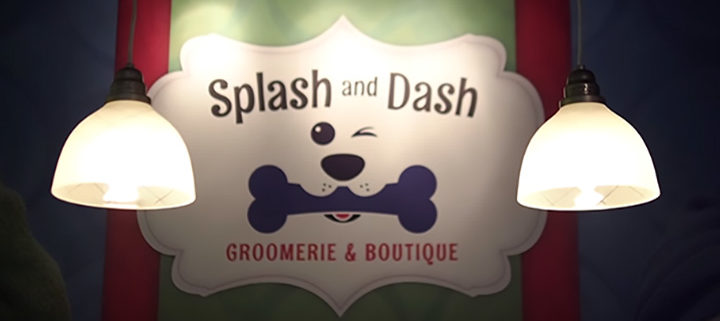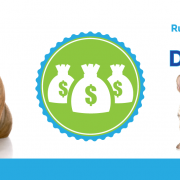10 Facts About Buying Your First Franchise
This Ten Step Guide Can Help Prepare You For the Life-Changing Decision of Buying A Franchise
There are a variety of reasons many invest toward buying a franchise. Prominent and reputable franchises have a perfected model. Theoretically, business strategies work on every level from marketing to revenue streams, and if you choose a good fit these strategies can work for you. Some call it the greatest business model ever invented; franchising has enabled hundreds of thousands of strong-willed individuals to own businesses. For the past five years, the franchising sector had an annual job growth rate of 2.6%, nearly 20% more than independent business adding 9.1 million U.S. jobs.
Also, being your own boss comes with its perks. You control your business, and as an extension, you control the aspects of your life worth controlling. Work schedule, salary, work-life balance, location, and mobility are all contingent on your own ambition.
So, what exactly is a franchise?
The concept of buying a franchising is simple at its core but is a complex undertaking. We like to look at franchising as a partnership. An entrepreneur has come up with an idea—product or service—started a business with this idea, and it worked. As this business grew, each segment of the business developed and was proven in the marketplace. At this point, the entrepreneur decides to convert to a franchise model. Once reaching fruition, it is time to expand, but the entrepreneur needs partnership to replicate the original business.
Of course, not every franchise follows this schematic but this is the most traditional route. Also apparent are illegitimate and deceptive franchise schemes that we all need to be wary of; know the warning signs.
This ten step guide can help future franchise owners find the perfect franchise that fits you!
1. Find Your Passion
Most likely, the reason you’re interested in a franchise is because you are burnt out of the industry and career pathway you are already working in. This is common. Whether it’s tiring of the corporate ladder, dealing with a bad boss, or marginalized by the limits of a company—you are not alone.
The key to not having this happen again is buying a franchise that adds to your happiness, not draining it. Before deciding on anything, take some time for self-reflection. Do you see yourself owning a small business? What kind of small business evokes your passion? Are you willing to follow the rules and guidelines of a franchise?
There are a few traits that are helpful to zone in on identifying the personality traits adept for franchising. If you find growing a business and constantly improving revenue streams thrilling then franchising could work for you. You need to be driven. Teachability is also important. You need to adapt to a training program and challenge yourself. A community-minded person who’s a natural leader is also a valuable skill. You will need to lead a team and make a positive impact in your community. Most importantly, are you choosing an industry you love? Imagine your day-to-day owning a small business in this industry.
Will the fun you have as a small business owner sustain you through the challenges? Tenacity is nothing without satisfaction and you will need both to get from where you are, to where you want to be.
2. Research the Market
Find an industry that is growing and is recession-proof. For instance, the pet franchise has expanded by over 15% since 2015. Industry expenditures are expected to reach $69.36 billion at the end 2017. During the Great Recession, from 2007 to 2010, the industry grew by over 17%. Finding a franchise sector that has advantageous investment points can mean sustained business longevity.
The key to research is balance. Find objective figures from sources outside of the franchise’s literature first. Depending on the company, be aware you might be speaking with a franchise consultant or a salesperson. This is not inherently a bad thing. Salespeople can be informative and will help you gain information, but be wary of things appearing too good to be true. For example, many will tell you the franchise failure rate is only 5%. This is not true. According to the SBA, franchises fail at the same rate as other businesses—two-thirds will fail in two years, and half will still be open after five.
Seek out honesty in your franchise partnership. Building a relationship stemming from ethical business practices is a good start to not be one of the failing businesses that got mixed up in a bad deal. Once you have decided on a particular industry find out more about the various segments of this industry. Following the pet franchise model, there are tons of opening business ideas like dog-training application software, grooming businesses, retail, and dog-walking just to name a few. Hone in on appealing franchises with a precise and realistic customization of what you’re looking for.
3. Financial Viability
They say defense is the best offense. In the business world, this translates to making financially-savvy investments. In franchising, you will pay a franchise fee, cost of equipment & construction, royalty fees, and other costs depending on the kind of franchise you are buying. Add up your capital. Discern a budget and let this guide your franchise research. If you know you have 75k in liquid assets buying a $2 million dollar franchise is obviously not in your budget.
Make sure you have enough to cover costs and pay for your livelihood for at least six months. However, you may consider longer when understanding that the FTC’s guide states it may take a year to become profitable, in some cases even longer.
Many entrepreneurs looking to buy a franchise explore financing options. The Small Business Administration has branches devoted to stimulating the economy and supporting future business owners get funding when they otherwise couldn’t.
4. Assess Your Strengths & Weaknesses
As you scroll through the dozens of candidates of possible franchises worth buying, you will want to know what to look for. So far you know the industry and price range. Now you can begin deciphering what franchise will fit you and not the other way around.
- How much business experience do you have?
- Are you an introvert or an extrovert?
- Can you handle owning multiple locations?
- Are you good with accounting?
- Are you good with sales?
- Are you good at managing people?
- Are you bad at technology integration?
Asking these questions of yourself will help you determine areas you excel in and areas where you will need help. This is what makes franchising more secure than independent business; franchise owners have support. In the areas you need more experience, a reputable franchise model will train and support you. Say you have limited skills in marketing. Find a franchise that will train you how to launch a successful campaign and provide marketing materials.
You can choose to look at franchising as a two-way street. As much as you invest in a company; that company should reciprocate with their investment in you.
5. Risk Tolerance
“The people who are crazy enough to think they can change the world are the ones who do.” Steve Jobs.
Steve Job was an aspirational person who, even now, inspires the inner entrepreneur. Risk is inevitable in all forms of enterprise and if decide you are willing to make a risk—please, make a calculated one. You can do this by drawing up a pro vs. con list.
Begin with the position you’re in now, comparing independent business to franchising, or even differentiate the better option between two franchises. On the pro column, list benefits like brand loyalty, support & training, proven market, and recurring revenue. Underneath the con column, you can list liabilities, cost, franchise fee, and limitations from franchise rules.
Organizing the advantages and drawbacks like this helps filter out the obvious bad fits. This chart is your cost-benefit analysis. If you begin to see a few franchises that have an extensive pro list and the con list is mostly generic—cons that apply to any franchise—you can explore this company with a little more confidence.
6. Walk into a Store
Before you buy a home you visit the house at night. Make sure the neighborhood still appeals. The same idea applies to buying a franchise. You’re going to want to visit a location and poke around before committing.
Many franchise models have ‘discovery days’ or on-site training in a current location but it can never hurt to explore a site on your own without the pressure. This helps you explore a franchises’ company culture. Do you like the store design? What was the ‘vibe’ of the place, did it seem like a fun place to own? You can take an informal assessment of a franchise without the pressure on your own just by walking in.
Treat this initial ‘tour’ passively. We wouldn’t recommend inquiring too much from a current franchise owner at this point. Remember, they are going to be busy running their business. This being said, a good franchise will extend the opportunity for you to visit with current franchise owners and ask all the important questions.
7. Watch for these Red Flags
If you view buying a franchise as establishing a partnership then partner with a company you trust. As with everything, there are good eggs and bad eggs. Taking an objective look at a prospective franchise will help you screen through a potentially bad deal. This is important before possibly sinking your life savings into what could have been the best choice you’ve ever made.
Inconsistent Disclosure. Every franchise will provide an FDD (Franchise Disclosure Document) which details the responsibilities of all parties. (We’ll discuss the FDD more extensively later). The FDD will disclose any litigation, fees, and conglomerates. If there is a lack of disclosure and it seems as if the franchisor is attempting to withhold information, take this as a warning signal.
Legal Issues. Unfortunately, some franchises get into some judicial proceedings, that even when you’re not involved, you are going to want to stay clear of this company. Litigation happens to many major franchises like Mcdonald’s, 7-Eleven, or Denny’s. This doesn’t necessarily mean this franchise is a bad investment choice this is just something to be aware of.
Pricing Restrictions. Some franchises enforce strict limitations on suppliers or require franchisees to use their own products. This is typically done to ensure profitability but this is not always the case. Make sure set price points are agreeable to your market.
No Support. A franchise model that is quick to sell but doesn’t have the infrastructure to support and train their franchisees is a big red flag. A reputable company should provide on-site training and support you to a point where you can successfully manage your franchise unit. Support should be ongoing and comprehensive.
Weak Business Model. Understanding the parent company’s business model is vital. Know the goals, projections, and key metrics your franchisor has established. Any holes in a business plan mean a flawed system.
8. Speak with Veteran Franchisees
Speaking with a franchisor or franchise consultant will be helpful but some of the most valuable expertise is going to come from current franchise owners. The FDD also includes names and numbers of current owners.
Questions to ask:
- If you were to do it all over again, would you?
- Would you recommend this franchise to your family?
- How long did it take you to become profitable?
- How much did you budget to get started?
- What was the hardest part of building this business?
- How supportive is headquarters?
- Is it a challenge to hire a good staff?
- Are you planning on expanding?
Again, a franchisor should arrange formal meetings between you and the veteran owners. This will probably happen at a few stages. The first might be conference calls that lead to discovery days or on-site meetings and training.
9. Find the Best Match
Using Splash and Dash Groomerie & Boutique as an example of how many have found the best fit when buying a franchise can provide some insight.
Franchise owners operating in this company knew they wanted to explore their combined passion for caring for animals and growing a business. They knew they didn’t want to go with a big-box option most likely because big-box pet stores are impersonal, expensive, and controlling. The upscale mom-and-pop feeling of Splash and Dash appealed to them more. They felt comfortable with the continued support headquarters offers and loved what they saw when they walked into a store. After all this research, they decided that buying a franchise with Splash and Dash was going to be the best option for them.
At the end of the day, you should be 100% confident with the franchise you choose. This is your life, investment, and business. Make sure you go with the right one.
10. The Franchise Disclosure Document
You may consider hiring professionals to help you navigate this legal document. FDDs can be extensive—as long as 50 pages and contain technical information worth getting a second opinion on. Although not always necessary it is sometimes wise to seek out an accountant, insurance agent, franchise lawyer, or consultant to help you with the FDD and other responsibilities of buying a franchise.
Don’t get intimidated with the FDD. Its purpose is to provide you with information like bankruptcy filings by the franchisor, litigation, specifics of training, costs, and much more.
Make sure you understand the FDD entirely before signing.
Good luck!
We hope you found this article helpful and we’ll leave you with the words of John D. Rockefeller.
“If you want to succeed you should strike out on new paths, rather than travel the worn paths of accepted success.”
Follow Splash and Dash Groomerie & Boutique:
- Website: http://splashanddashfordogs.com/
- Website: https://splashanddashfranchise.com/
- Facebook: https://www.facebook.com/splashanddashfordogs/
- Instagram: @splashanddashfordogs
- LinkedIn: https://www.linkedin.com/in/dan-j-barton-622ab517
- Twitter: splashanddash4dog











